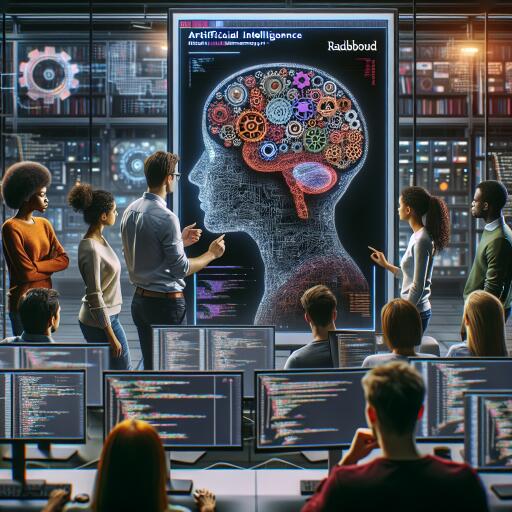Revolutionizing Visual Perception: Radbound University’s AI Breakthrough
The frontier of artificial intelligence (AI) continues to expand, breaking barriers that once seemed insurmountable. From synthesizing human-esque dialogues to crafting images indistinguishable from those captured by cameras, AI’s capabilities are reaching new heights. The latest in this series of advancements comes from a team of researchers at Radboud University in the Netherlands, who have crossed another frontier: reconstructing images based on brain activity with unparalleled accuracy.
Imagine thinking of a picturesque sunset, a loved one’s face, or a bustling city street, and having a machine replicate those thoughts into visual form purely based on your brain waves. This isn’t a scene from a science fiction movie anymore; it’s the reality being forged at Radboud University. The team has engineered an AI system with the extraordinary ability to recreate the exact images a person is looking at by analyzing their brain activity. This development not only promises exciting prospects for the fields of neuroscience and AI but also opens up potential applications in numerous other domains.
The process involves the AI system scanning brain activity as subjects view specific images. Over time, the system learns which areas of the brain to focus on to generate the most accurate recreations. These images, although initially rough, have been refined significantly as the AI system’s learning progresses, marking a notable achievement in the understanding and interpretation of human cognitive processes.
“As far as I know, these are the closest, most accurate reconstructions,” stated Umut Güçlü, a key researcher at Radboud University, in a conversation with NewScientist. This claim underscores the strides made by the team in perfecting a technology that can bridge the gap between the neuropsychological and artificial intelligence domains.
The implications of this research are vast and varied. Beyond just an intriguing proof of concept, the ability of AI to reconstruct visual experiences from brain activity has profound potential applications. In the medical field, it could aid in the rehabilitation of patients who have lost their ability to speak or move, enabling new modes of communication and interaction with their surroundings. Moreover, in the realm of security and law enforcement, it might offer innovative solutions for crime scene reconstructions based purely on witnesses’ memories.
Additionally, this technology could radically transform the way we interact with digital interfaces, enabling more intuitive and seamless control of devices directly through cognitive commands. The possibilities are only as limited as our imagination.
While the enthusiasm surrounding these developments is indeed warranted, it’s essential to proceed with caution. The ethical ramifications of technology that can ‘read’ and recreate thoughts must be thoroughly considered to ensure privacy, consent, and autonomy are not compromised.
As we stand on the brink of this new era of technological synergy between AI and human cognition, it’s vital to foster a dialogue between technologists, ethicists, and the public. Ensuring that as these capabilities evolve, they do so in a way that benefits society, respects individual rights, and broadens our understanding of the human mind and its capabilities.
Radboud University’s breakthrough showcases the remarkable potential AI holds in augmenting human abilities and enhancing our understanding of the very mechanisms that underpin cognition and perception. As this technology continues to develop, it may well redefine our relationship with the digital world, blurring the lines between thought and display in ways we are only just beginning to comprehend.









